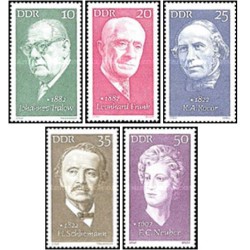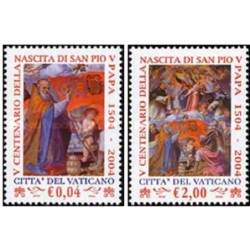- جدید
- ناموجود



توجه : درج کد پستی و شماره تلفن همراه و ثابت جهت ارسال مرسوله الزامیست .
توجه:حداقل ارزش بسته سفارش شده بدون هزینه پستی می بایست 100000 ریال باشد .
توجه : جهت برخورداری از مزایای در نظر گرفته شده برای مشتریان لطفا ثبت نام نمائید.
| Ilya Ulyanov | |
|---|---|
 |
|
| Born | Ilya Nikolayevich Ulyanov 31 July 1831 Astrakhan, Russian Empire |
| Died | 24 January 1886 (aged 54)[1] Simbirsk, Russian Empire |
| Occupation | teacher, public education administrator |
| Known for | father of Vladimir Lenin |
Ilya Nikolayevich Ulyanov (Russian: Илья́ Никола́евич Улья́нов; 31 July [O.S. 19 July] 1831—24 January [O.S. 12 January] 1886, Simbirsk) was a Russian public figure in the field of public education. He was the father of revolutionaries Vladimir Lenin, who became a Bolshevik leader and founder of the Soviet Union, and Aleksandr Ulyanov, who was executed for his attempt to assassinate Tsar Alexander III in 1887.
Ilya Ulyanov was born in Astrakhan to a Chuvash[2] father, Nikolai Vasilievich Ulyanov (1765—1838) (sometimes as Ulyanin), a port-city tailor and a former serf who came from Sergachsky District, Nizhny Novgorod Governorate. He received his freedom from a landowner, Stepan Mikhailovich Brekhov. Ilya's mother, Anna Alexeyevna Smirnova (1793—1871), was the daughter of a rich city-dweller Alexei Lukyanovich Smirnov (a son of Lukyan Smirnov who hailed from rich Oirats of Middle Asia).[2] Nikolai married the 23-year-old Anna in 1823. Ilya had three sisters and a brother.[3]
Ilya Ulyanov graduated from Kazan University's Department of Physics and Mathematics in 1854. In the 1850s and 1860s, he was a mathematics and physics teacher at Penza Institute for the Dvoryane, and later at a gymnasium and a school for women in Nizhny Novgorod. Around that time, he married Maria Alexandrovna Ulyanova. While in Penza, Ulyanov conducted meteorological observations, on the basis of which he would write a couple of scientific works called On the Benefits of Meteorological Observations and Some Conclusions on Their Use for Penza (О пользе метеорологических наблюдений и некоторые выводы из них для Пензы) and On Thunderstorm and Lightning rods (О грозе и громоотводах).
In 1869, Ulyanov was appointed inspector of public schools in the Simbirsk guberniya (in 1874-1886 - their director). In 1882, Ulyanov was promoted to the rank of Actual Civil Councillor, which gave him a privilege of hereditary dvoryanstvo and accompanied with the award of the Order of St.Vladimir, 3rd Class.[3]
Ilya Ulyanov was a well-educated man with excellent organizational and teaching skills. Some Soviet historians believed that his pedagogical views had been formed under the influence of the revolutionary ideas of Nikolai Chernyshevsky and Nikolai Dobrolyubov. Ulyanov contributed immensely to elaboration of theory and practice of elementary education. He was an advocate of equal rights for education regardless of gender, nationality and social status. In 1871, Ulyanov opened the first Chuvash school in Simbirsk, which would later be transformed into Chuvash teacher's seminary. He also established national schools for Mordvins and Tatars.[4] Furthermore, Ulyanov organized and presided over many teacher's congresses and other events of the similar kind.[1]
In 1886, Ulyanov died suddenly of a heart aneurysm in Simbirsk, later renamed Ulyanovsk in honor of Lenin.[3]
تشکر نظر شما نمی تواند ارسال شود
گزارش کردن نظر
گزارش ارسال شد
گزارش شما نمی تواند ارسال شود
بررسی خود را بنویسید
نظر ارسال شد
نظر شما نمی تواند ارسال شود

check_circle
check_circle















